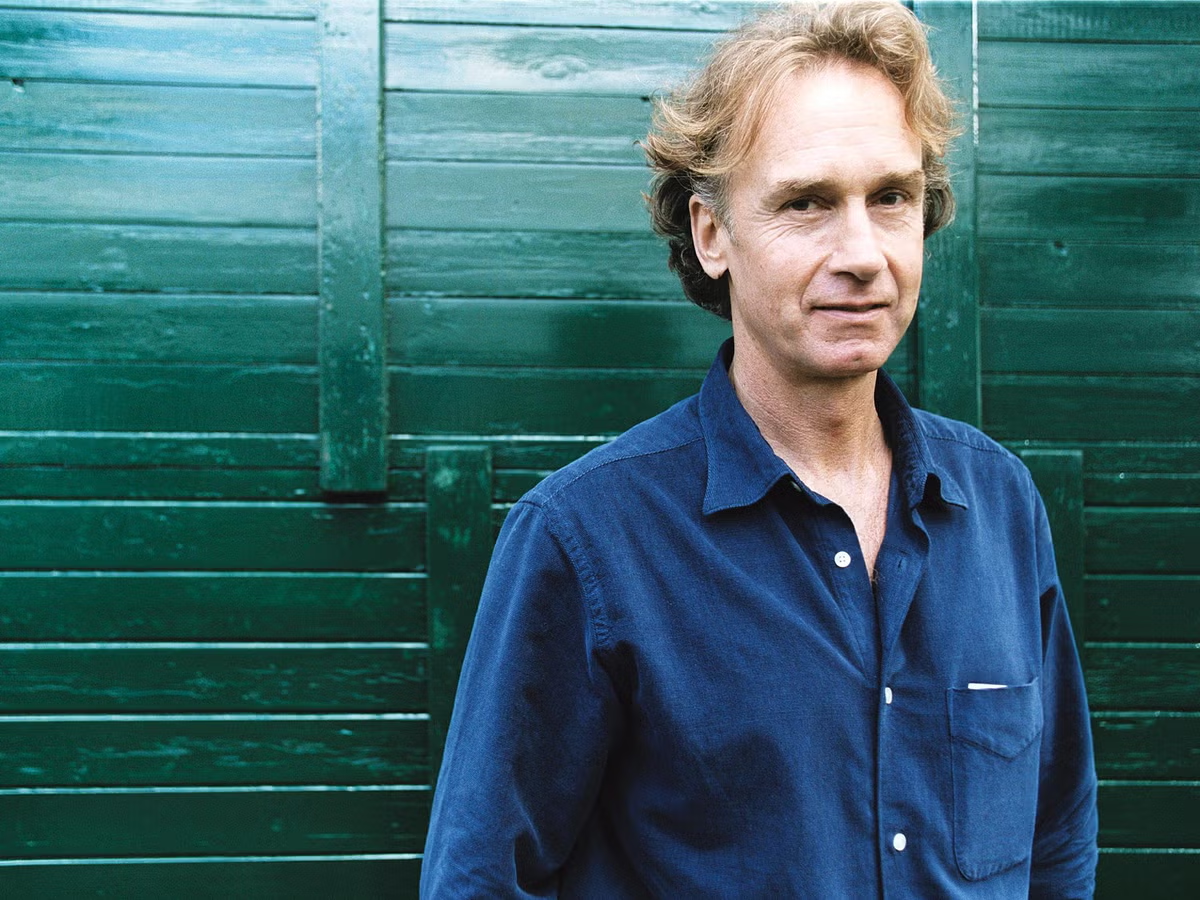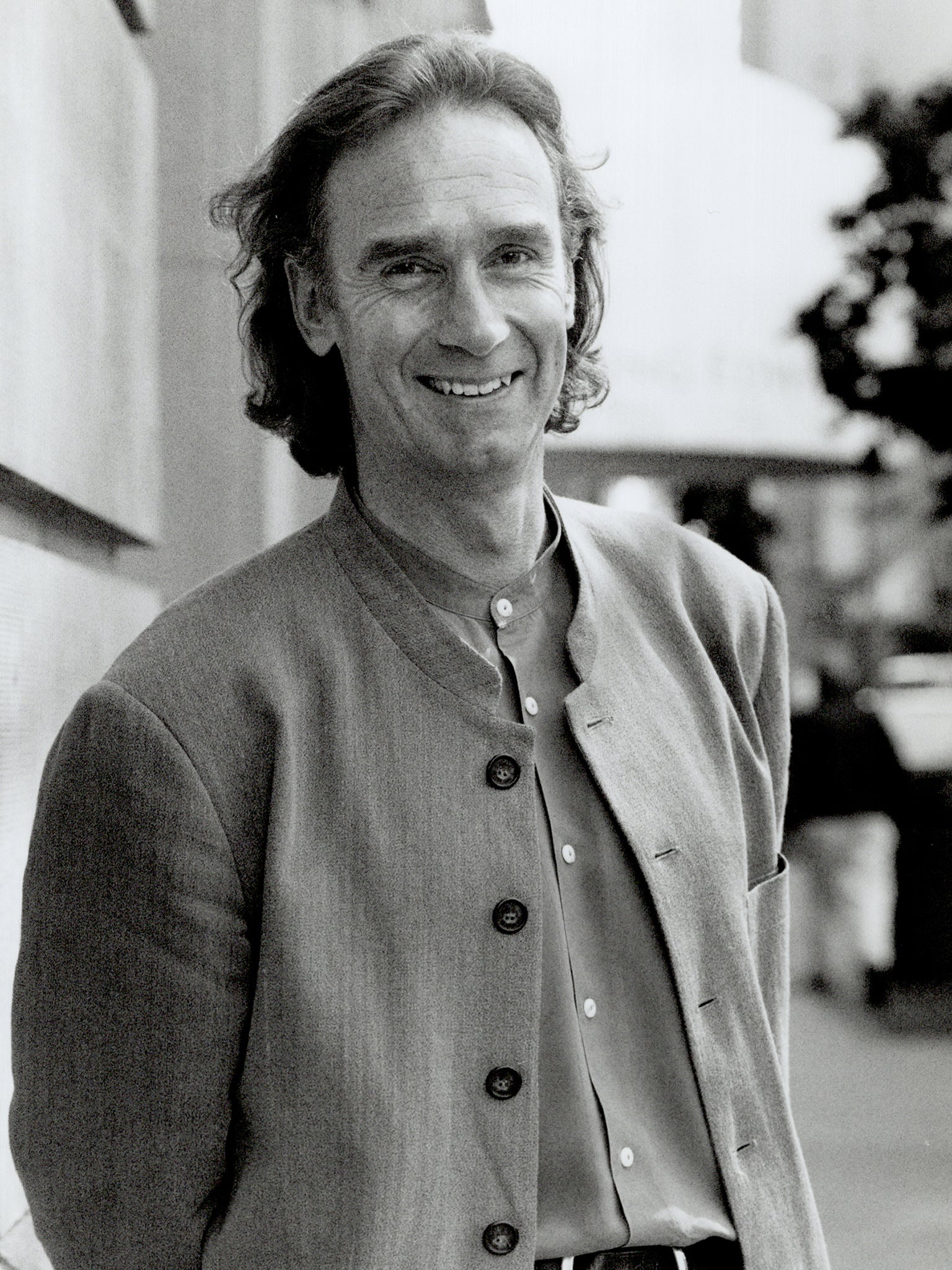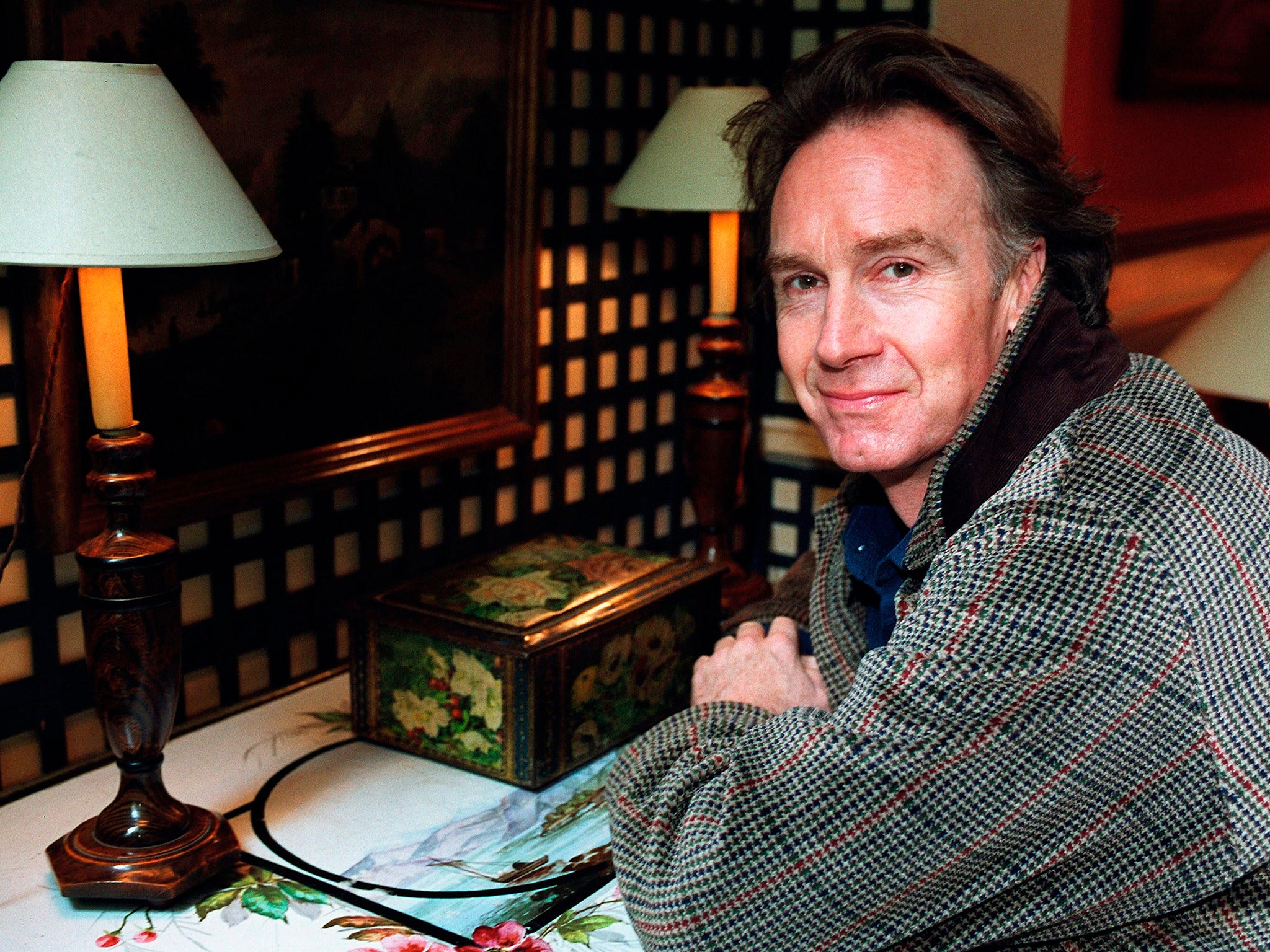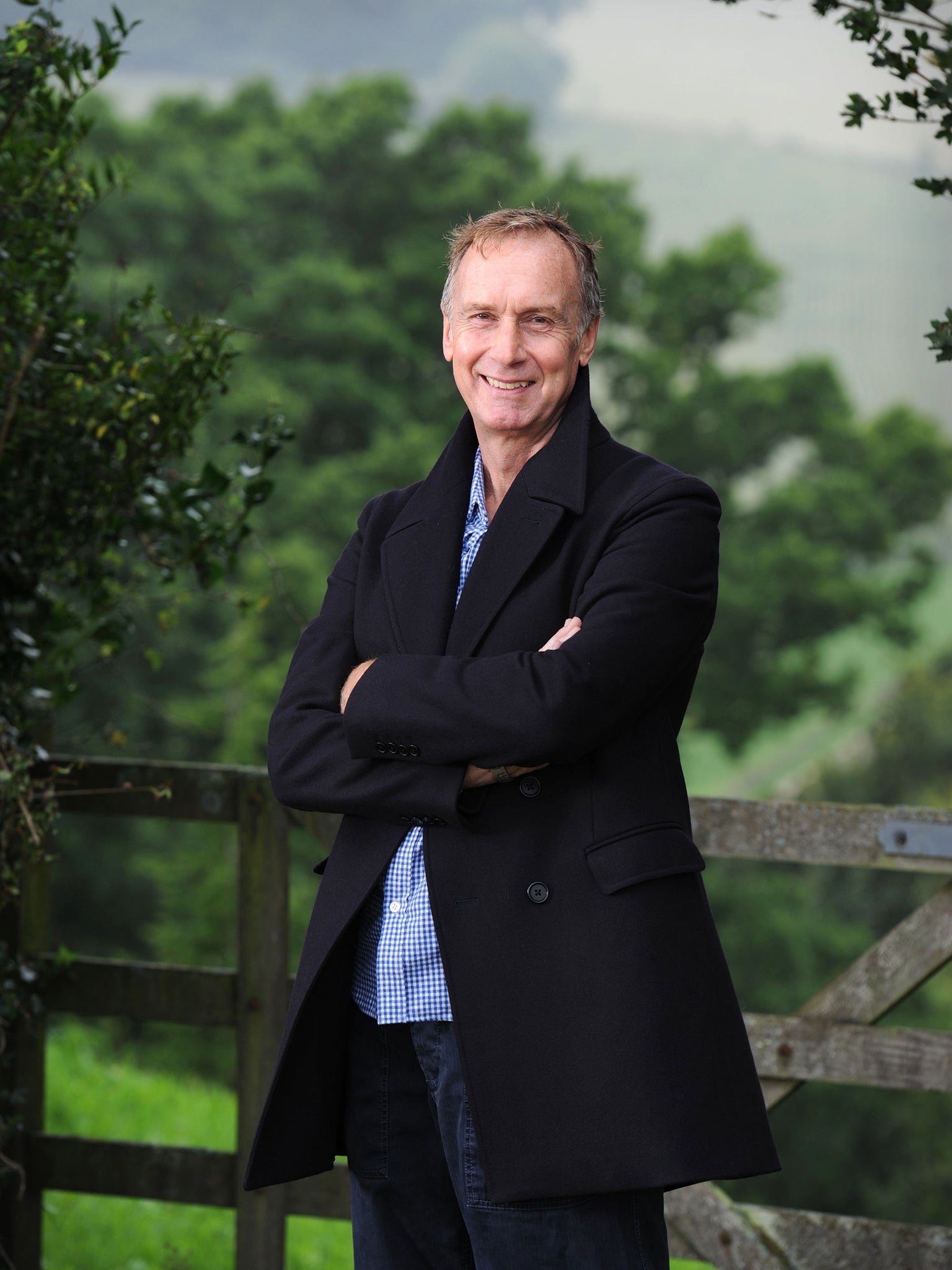
Nicholas Evans, the British novelist whose literary debut, The Horse Whisperer, became a publishing phenomenon, selling more than 15 million copies and leading to a hit movie adaptation by Robert Redford, has died aged 72.
A mild-mannered former journalist and television producer, Evans was working as a screenwriter and trying to break into filmmaking when he heard a story that “made me shiver”, as he later told it. Visiting a friend in southwestern England in 1993, he met a blacksmith who told him about a “horse whisperer”, an almost mystical figure who could heal a traumatised pony by uttering a few gentle words.
The story captivated Evans, who had grown up playing cowboys and Indians in the countryside and reading novels by Jack London. Now he was £60,000 in debt, looking for a new direction – and perhaps a second mortgage – after unsuccessfully trying to direct his own movie. Here, he decided, were the seeds of a story he could tell in his own voice.
“Had my movie career been more successful, I might have tried writing the story as a screenplay,” he recalled in a Q&A on his website. “Luckily, I was on my uppers, deeply disillusioned with the movie business, and didn’t see the point of writing another script to gather dust on my desk.”
So Evans began writing a novel, travelling to Montana, New Mexico and California to interview expert horsemen and research the American West. He returned home with the basic outline of a story about a young girl, Grace Maclean, and her high-spirited horse, Pearl, who are hit by a truck and recover with help from a Montana rancher who falls in love with Grace’s mother. Evans wrote half the book, some 200 pages, and shared the manuscript with his friend and literary agent, Caradoc King, deciding that if the agent didn’t like it, “I was just going to throw it away.”
The manuscript stayed. Marketed as a cross between Cormac McCarthy’s western novel All the Pretty Horses and Robert James Waller’s blockbuster romance The Bridges of Madison County, it generated a bidding war after King sent it to publishers just before the 1994 Frankfurt Book Fair. The North American publishing rights were sold at auction for more than $3m, and Evans earned another $3m for the movie rights, after what he described as a surreal evening in which he was tasked with sizing up Hollywood producers including Redford and Scott Rudin.
“My kids and my wife were downstairs,” Evans later told Variety, “and upstairs I had some of the biggest names in the business asking my permission to take $3m from them. It was just absurd.”

By the time The Horse Whisperer was published in 1995, critics seemed eager to cut Evans’s multimillion-dollar novel down to size. One New YorkTimes reviewer, Randall Short, described it as “sentimentally bloated and wholly devoid of authentic feeling”; another, book critic Michiko Kakutani, deemed it “a sappy romance novel, gussied up with some sentimental claptrap about the emotional life of animals and lots of Walleresque hooey about men and women”.
Readers felt differently. The novel topped the Times bestseller list, and Evans’s American publisher, Delacorte, claimed it was the fastest-selling first novel in history, with more than 1.5 million copies sold in its first year alone. The book was translated into 40 languages and adapted into a 1998 movie starring Redford, who produced and directed. The film also featured Kristin Scott Thomas and Scarlett Johansson, in one of her first major film roles, and grossed more than $186m worldwide.
Evans, who said he turned down an offer to write the screenplay, admired the acting but believed the film had “completely missed the point of the book”, which struck what he considered a hopeful note at the end, even if the penultimate scene featured a deadly stampede of wild horses.

“I think there seems to be a kind of questing around at the moment, with people wanting to find out if there is more to life than material things,” he told the New YorkTimes upon the novel’s release. “This book is about hope, about healing and the redemptive power of love, and how humans have an extraordinary ability to travel through the worst kinds of pain and still survive. It’s a life-affirming message at a time when there’s a lot of darkness around.”
Evans had firsthand experience of that darkness. As his novel was sold at auction, he was unsure if he would ever finish it, having recently been diagnosed with skin cancer. He kept his illness secret even as reporters deemed him “the luckiest man in Britain”.
“The day after the operation, I was going round publishing houses trying to look suave and normal, and I was in a cold sweat,” he revealed in a 2011 interview with TheGuardian. “I was just dying, I was in such pain.”
Then came publication day, and his book’s swift rise up the bestseller lists. There were more difficulties to come – a fractured marriage, a near-fatal mushroom poisoning – but “for three or four years”, he said, “my feet didn't touch the ground”.
Nicholas Benbow Evans was born in Bromsgrove, Worcestershire, on 26 July 1950. His father was the sales director for an engineering company, and his mother was a homemaker. At eight, he was sent to the nearby Bromsgrove boarding and day school. He later studied law at St Edmund Hall, Oxford.

After graduating in 1969 with first-class honours, he was a newspaper reporter at the Evening Chronicle in Newcastle upon Tyne and later was a television reporter and producer, doing segments about US politics and the Lebanese civil war for a weekly current affairs show.
By 1982 he had started making TV documentaries about cultural figures, including actor Laurence Olivier and painters Francis Bacon and David Hockney. He was producing a special about filmmaker David Lean, the director of Lawrence of Arabia, when Lean encouraged him to strike out on his own.
“He kept telling me, ‘Why are you making a film about me? You ought to be making a film yourself, not about somebody else who makes films,’” Evans recalled in an interview with the Chicago Tribune.
He later wrote and produced the 1992 comedy Just Like a Woman – about a cross-dressing financial executive (played by Adrian Pasdar) who strikes up an affair with his landlord (Julie Walters) – before writing novels. His second book, The Loop (1998), involved a pack of wolves tormenting cattle ranchers and sold 5 million copies. His later novels include The Smoke Jumper (2001), about a love triangle involving two friends who fight wildfires, and The Divide (2005), centred on a wealthy young woman who becomes an eco-terrorist.
Evans’s first marriage, to Oxford classmate Jenny Lyon in 1973, ended in divorce soon after his first novel vaulted him to stardom. He later married Charlotte Gordon Cumming, a Scottish singer-songwriter. In addition to his wife, survivors include a son and a daughter from his first marriage, a son from a relationship with TV producer Jane Hewland, and a son from his second marriage.
On a trip to his brother-in-law’s Scottish Highlands estate in 2008, Evans and his wife accidentally ate poisonous mushrooms and were rushed to the hospital with convulsions. They suffered kidney failure and needed transplants, which Evans received three years later after his daughter persuaded him to take one of hers.
Evans had nearly completed his novel The Brave (2009) when the poisoning occurred, and said that the novel's themes of family secrets and guilt were especially resonant with his own experience foraging in the woods. He and another family member had picked the mushrooms “assuming that the other one knew what they were doing”, he told the Guardian.
“Guilt is my subject,” Evans liked to say. But this time, he joked, “I’ve taken research to a rather extreme degree.”
Nicholas Evans, author and journalist, born 26 July 1950, died 9 August 2022
© The Washington Post







